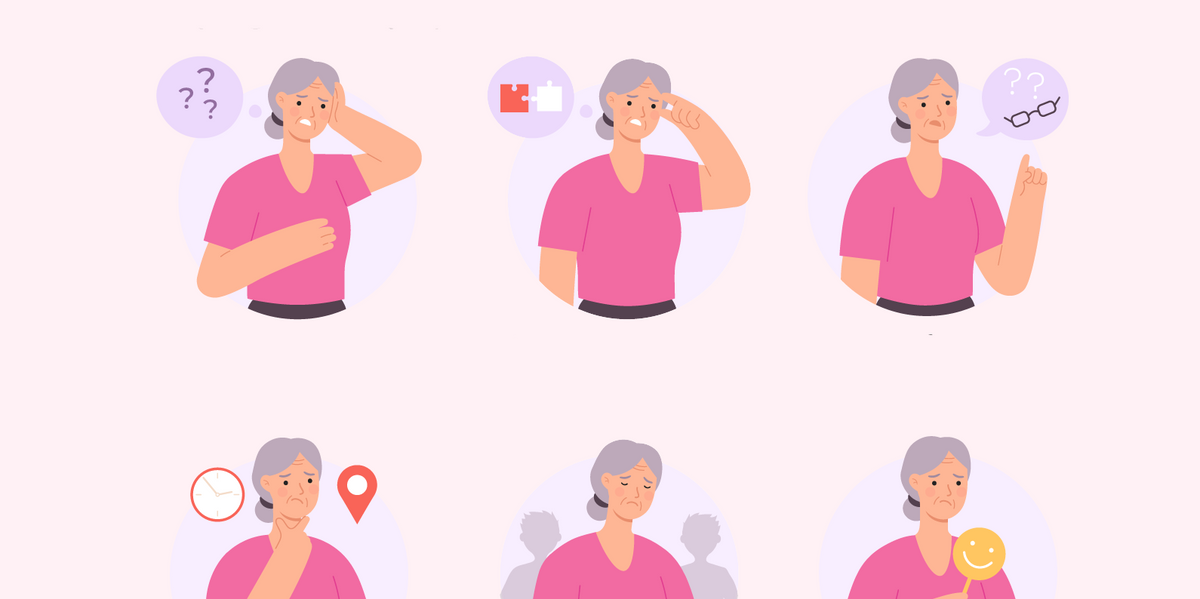
About 1 in 10 people over 65 have Alzheimer’s. And almost 2 out of 3 are women.
Alzheimer’s disease begins years before symptoms appear and gets worse slowly.
At first, symptoms may not be noticeable, but they get worse over time.
Once diagnosed, people with Alzheimer’s live an average of 4–8 years, but they can live as long as 20 years.
Pay attention to small changes
Some early signs and symptoms of Alzheimer’s:
Memory loss
Challenges or problems with familiar tasks
Misplacing items
Confusion
Social isolation
Changes in mood
Don’t delay
If you notice any changes in memory or thinking, don’t assume they are a normal sign of aging . They might be. But they might be the early signs of Alzheimer’s.
Early diagnosis = better outcomes
Alzheimer’s drugs can help some people, especially when taken at the first sign of changes in memory or thinking.
Less cognitive impairment at diagnosis is linked with a longer life expectancy.
Early diagnosis = more treatment options
Treatment options change as the disease progresses. The newer treatments depend on an early, accurate diagnosis because they’re not effective at a later stage.
Two types of Alzheimer’s drugs
Early stage treatments: slow disease progression
These drugs attach and remove beta-amyloid from the brain.
Beta-amyloid is a protein that clumps together to form sticky plaques in the brain, causing brain cells to die.
But these types of drugs only work for so long. As the disease gets worse, brain damage becomes irreversible. Treatments can’t slow down the pace anymore.
Later stage treatment: help manage symptoms
These drugs include:
Early treatment is possible
Alzheimer’s can be diagnosed earlier than ever. An early diagnosis can ensure you get the best treatment options possible.
Don’t wait — tell your healthcare provider right away if you have symptoms of Alzheimer’s.
This educational resource was created with support from Eli Lilly and Company, a 2023 HealthyWomen Corporate Advisory Council member.
Credit : Source Post






